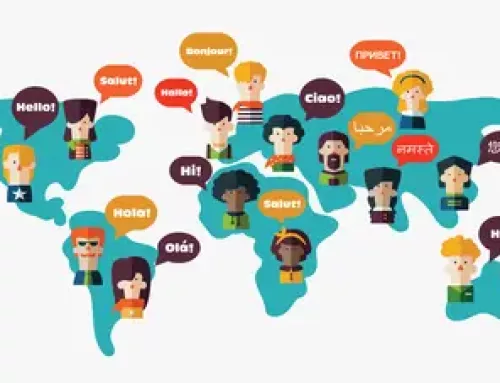When establishing your e-commerce site overseas, a quality translation is crucial for an excellent brand image and great sales.

Preparing a translation strategy
Translating an e-commerce site can seem like a lengthy process, which is why it is essential to prepare beforehand. A thorough preparatory phase will save you time and earn you quality while reducing your translation budget.
You will need to take into account a number of elements, such of the choice of target language and the most important parts of the site to translate. The habits of internet users in the target market should also be kept in mind, such as currency, payment methods, legal notices, etc.
Choice of language pair
The choice of languages is another key part of preparing your e-commerce site translation strategy: do you want to target one market in particular or several international ones? You could, for example, choose to translate your website into French or German first, then into other languages depending on the return on investment you receive.
Translation volume
First, you need to decide whether you want to translate all of your e-commerce site or just certain parts. If your website is very large, it might be sensible to translate just some content, depending on its importance and relevance in the target language.
For example, a book available only in French would probably not sell many copies on the Spanish market; so, consider excluding this product page from your content to be translated.
Remember that parts of some CMS like Prestashop have already been translated, such as email templates, warning messages, form fields, etc. There is therefore no need to translate this content again.
As for your product pages, you may want to translate just the title and short description, or add the long description and technical features too.
Choosing a translator for your e-commerce site
When you decide to translate your e-commerce site, you can turn to several kinds of translation service provider. In the case of a large site, it may be wise to use a translation agency, as they should be able to manage large volumes of words in several languages, with teams of qualified translators who are specialists in your industry.
To reduce your expenses, choose a translation agency that will not charge you for repetitions. By using specialized tools and translation memories, these agencies can analyse your files and detect repeated content, so that you are only charged once for it. This is essential if you have a large catalogue and some products have the same description, for example.
You can ask for a free translation test of around 300 words to evaluate the translation quality before making your choice.

Our advice for a successful e-commerce translation
If you want to sell internationally, it is not enough just to translate your content. Your whole marketing strategy must be adapted to your new audience.
Adapting to the target market
Elements such as currency ($, €, £, etc.), units of measurement and figures must be adapted to the local format in your target market. As for payment, your customers must be able to pay using their preferred payment method (Visa, MasterCard, etc.) and to choose a well-known local or international carrier.
Once all these elements are adapted to your new market, you can opt for an even more localized translation by choosing expert translators who specialize in SEO. The result will be fluent, effective content in the target language and an increased international conversion rate.
To create a sense of trust among your new overseas customers, don’t forget to translate your legal notices and terms of sale. Make sure you use a translator who specializes in legal translation, as they will be able to adapt the text to your new audience.
Finally, to accelerate the translation process, you can use automatic extraction and integration methods. Translation directly in the back office is only feasible for very small sites as this translation method does not make the most of translation memory tools, which help translators to produce a consistent, high-quality translation in less time. The ideal solution is a content extraction module for XML, HTML, CSV or XLS formats, so that your translation provider can translate all of your content on one platform then integrate the translation in the same format directly on your website.






